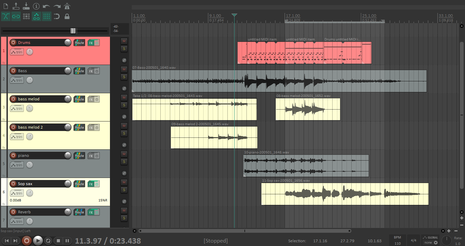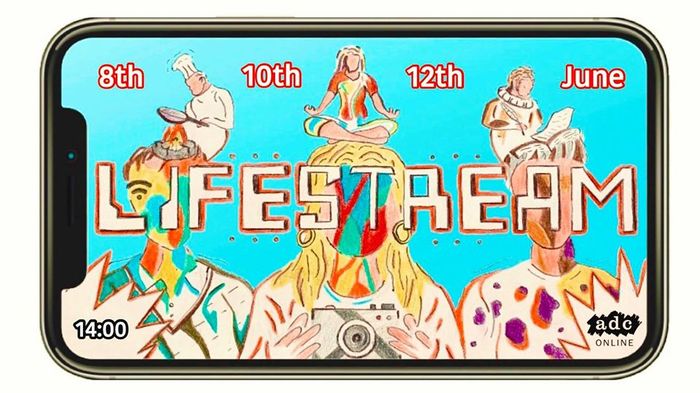HOT SEAT: Composer
Samuel Macdonald takes us through what it’s like to be the mind behind the music in Cambridge Theatre

The role of composer has no set format in Cambridge Theatre. We jump from show to show writing atmospheric music, songs for musicals, arias for operas, and never really settle on a single mode of operation. We occupy a strange position in any production, because when we’re doing our job properly, you might barely notice us. Whilst the actors capture your attention, we, Cambridge’s growing pool of theatre composers, are there, nudging you to feel a certain way, frequently without your knowledge.
The process of composition begins with a meeting with the director, who explains the play and their interpretation, and gives an idea of what they would like the music to do. This leaves a lot of freedom, since most directors are happy to leave elements of style up to you, and since the meeting is almost always before the rehearsal process has begun, any sense of the length or number of music cues required is very uncertain (it won’t be certain until opening night, get used to that). This is also the point when you realise you’re going to be expected to record this music yourself in order to play it through the speakers in the Corpus Playroom, so you desperately learn how to play bass guitar. Once you’ve come up with and recorded 2-5 terrible ideas, you and the director settle on some music which becomes the basis of the score.
"Cambridge is a wonderful scene in which to be a composer"
At this point, developing initial ideas into what is heard in performance, every show I’ve composed for have gone in different directions. For The Djinns of Eidgah, the score was built from a single recording I made of a theme, which I called ‘Fatima’s Eyes.’ Reading through the script I tried to imagine the right mood to follow from the final line for each scene and generated material by remixing elements of the main theme, for example by looping one section and cutting the piano. For CTRL-Z I took a more ground-up approach, which included a number of smaller musical and sonic ideas, programmed through software synthesis, which I was able to introduce and adapt entirely independently of one another. This latter approach was partly informed by capacity of QLab – the software used in theatres for cuing sound effects and music – to loop multiple individual sound files at once, allowing for music to interact live with the timings on stage. This is why communication between composer and sound designer on productions like these is so important – the music is not fully formed until it’s played out of the speakers on opening night. That moment when, all of a sudden, drama and music come together in a precise configuration unique to that hour and that performance, makes all of the effort worthwhile.
Tired of lurking furtively in the shadows, more and more theatre composers in Cambridge are stepping into the spotlight by writing their own musicals and operas, with Lent Term 2020 featuring premieres of Georgia Rawlins’s Life With You, Arthur Roadnight’s Those Left Behind, and (who could forget) Joe Venable’s Cymbeline: The Musical. The opportunity to put on your own, newly composed musical theatre is a rare treat, but one which abounds in Cambridge. As I know from my own experience with CUADC/Footlights Pantomime 2019: Red Riding Hood, co-composed with Laurence T-Stannard, and my opera Jonah on the Hill, teaching a talented cast the noises in your head and seeing them not only learn, but memorise your music is absolutely unbelievable.
"We occupy a strange position in any production, because when we’re doing our job properly, you might barely notice us"
The chaos of the annual CUMTS 24 Hour Musical is a magnificent microcosm of these larger new musicals and, in many cases, serves as a way for new composers to get started in theatre, especially by pairing them up with a lyricist. This show is the best kind of carnage for everyone involved, but composers have a unique role in both writing and rehearsal. At 11pm the theme is revealed – including ‘New Year’s Party’, ‘Love Island’, and ‘Get Me Out Of Here’ in recent years – and composers rush over to pianos with a lyricist and a lot of caffeine and the two will write a song until about 3am, when they both go to sleep. The composer then gets up at around 9:30am in order to teach the cast the song. After sleeping again from about 3pm until 10pm (or, in the case of Georgia Rawlins in 2020, taking a mock physics exam – Cambridge stops for nobody) they return to the ADC to play piano in the performance. Exhausting as it is, playing this part in the large group of people together to build something from nothing in 24 hours is entirely worth it, and I can recommend it to any composer or songwriter.
From the invisible music of plays to the thrills and emotions of new musical theatre, Cambridge is a wonderful scene in which to be a composer, where wild experimentation is met with enthusiasm and realised by the extraordinary talent on display in this scene. Next time you’re at the ADC or the Corpus Playroom, consider lending an ear, when the actors can spare it, to the composer.
 News / Hundreds of Cambridge academics demand vote on fate of vet course20 February 2026
News / Hundreds of Cambridge academics demand vote on fate of vet course20 February 2026 News / University Council rescinds University Centre membership20 February 2026
News / University Council rescinds University Centre membership20 February 2026 News / Judge Business School advisor resigns over Epstein and Andrew links18 February 2026
News / Judge Business School advisor resigns over Epstein and Andrew links18 February 2026 News / Petition demands University reverse decision on vegan menu20 February 2026
News / Petition demands University reverse decision on vegan menu20 February 2026 News / Caius students fail to pass Pride flag proposal20 February 2026
News / Caius students fail to pass Pride flag proposal20 February 2026










